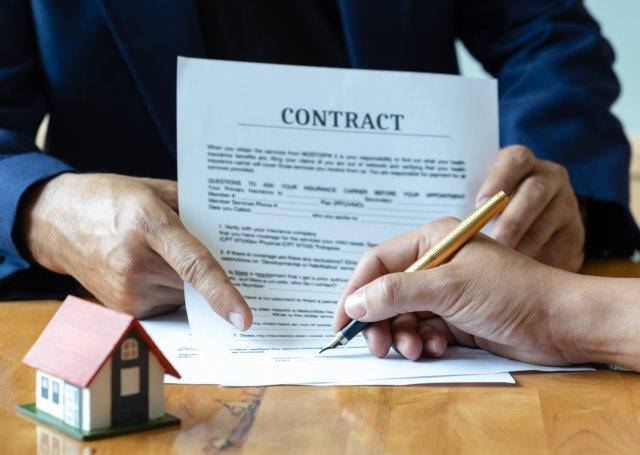After you’ve decide to make an offer on a property, you must submit an offer letter to purchase the property in writing. Your offer letter is a legally binding document that includes details such as:
- Buyer information such as your your name and current address
- Price you’re willing to pay for the home
- Deadline for the seller to respond to your offer.
- Home Inspection requirements – You must have the right to request the seller fix, repair or credit issues uncovered during inspection.
- Deposit or Earnest money – see more below
Your real estate agent should write the offer letter for you and deliver it to the seller’s agent immediately.
Click here to see an example offer letter
Most offers may include an earnest money deposit. An earnest money deposit is a small amount of money, typically 1% – 2% of the purchase price.
Your earnest money deposit is applied as a down payment and closing costs if you buy the home.

Is earnest money refundable?
Earnest money is not always refundable. For example, if a buyer fails to follow the deadline set out in the contract, refuses to fix or credit issues, or if the buyer intends to not to go through the home purchase for contingencies not mentioned in the contract, the seller gets to keep all the earnest money.
What happens after you make an offer?
After the seller receives the offer, she can respond in one of three ways:
- Accept the offer: If the seller accepts the offer, you can move onto the next step.
- Reject the offer: If the seller rejects your offer, you have a decision to make: (1) submit a counter offer or (2) move onto another home.
- Give you a counteroffer: The seller can also come back with a counteroffer of their own. They may change the purchase price or the terms of the sale. You can accept the counteroffer, reject it, or make another counteroffer.
Negotiations may continue with additional counteroffers and offers made. Let your real estate agent help you manage negotiations – don’t be afraid to walk away if you can’t reach an agreement.

Tips for making a successful offer
1. Be Tactful and Polite
Although this is a business transaction, you must remember that you are buying someone’s home.
If you are overtly negative about the house, or focus entirely on the flaws, you will make the seller much less willing to negotiate. Remember that you are buying a house, but that you are interacting with another person. If you are likable, it will be easier to make a deal that benefits both of you
2. Make A Reasonable Offer
Ask your real estate agent to provide comparisons (comps) for similar houses in the area. Use this data to determine if the house is fairly priced.
Understand the market conditions. Is there plenty of supply (people trying to sell) or tight supply (more buyers than sellers is called a Seller Market)?
You should also know how long the house has been on the market. An owner with a home on the market for 60 days as compared to 10 days may open to negotiate.
Zillow recommend that you should make your first “offer lower than the maximum price you’re willing or able to pay. In a sellers’ market, where homes are selling quickly and over list price, that may mean shopping for listings below what you can afford.”
If the initial listing price is something you are comfortable with, make your offer.
If you want to come in slightly under the listed amount, try to think like the seller. Ask yourself how much you would be willing to negotiate.
3. Do Not Overreach
You don’t want to come in with a low offer, but you also don’t want to overreach in your excitement to close the deal. Take your time to negotiate.
A motivated seller will often come down from the initial list price if it is buyers market. Just as you wouldn’t accept a home loan that is more than you can afford, you also shouldn’t accept a price that is outside of your budget – no matter how much you love the house.
4. Do Not Agree to Unfavorable Terms
Unfortunately, many first-time homebuyers make critical errors in their eagerness to “win the deal.” Especially in a seller market. One common mistake is foregoing a home inspection or accepting an unreasonable counteroffer.
If you don’t have the home inspected by a professional, you will be responsible for any damages after you move in. You can’t claim a leaking roof or broken heating system after the deal has closed – this must be done before your move-in date.
In Summary,
Patience and knowing the local housing market is key for making a successful offer. Although buying your first home is a thrilling experience, you can’t let that cloud your vision.
Once you and the seller agree to an offer, it’s time to move on to the appraisal and home inspection.


